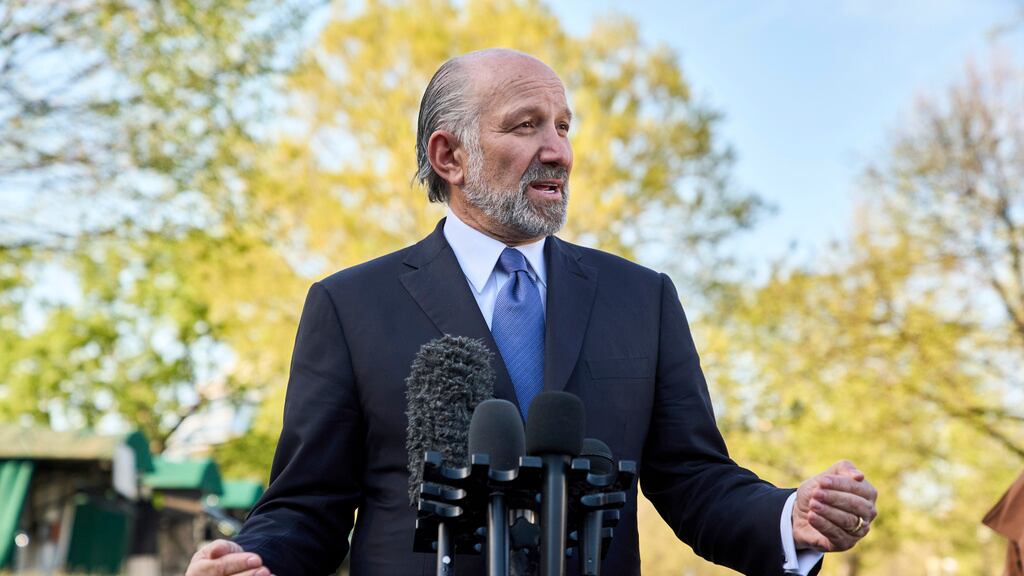The tariff exemptions announced for electronic products such as cell phones and laptops are only a temporary relief until the government of President Donald Trump develops a new specific tariff approach for the semiconductor industry, announced Commerce Secretary Howard Lutnick on Sunday.
PUBLICIDAD
White House officials, including Trump himself, downplayed the significance of the exemptions that reduce, but do not eliminate, the impact of U.S. tariffs on popular consumer devices and their key components on Sunday.
PUBLICIDAD
What did they say at the White House about exemptions on the import of electronic devices?
“They are exempt from reciprocal tariffs, but they are included in semiconductor tariffs, which will probably come in one or two months,” Lutnick commented on the ABC’s “This Week” program.
Trump further increased the confusion hours later, declaring on his social network that there was “no ‘exception’ at all because the goods” are “simply being moved to a different bucket” and will still face a 20% tariff, which is part of his government’s efforts to punish China for its role in fentanyl trafficking.
What was Trump’s government’s original announcement?
The Customs and Border Protection Office indicated that items such as phones, laptops, hard drives, flat-screen monitors, and some chips would be eligible for exemption. Machines used for semiconductor manufacturing are also excluded. This means that they will not be subject to most of the tariffs imposed on China or the 10% base tariffs elsewhere.
In a statement on Sunday, the Ministry of Commerce of China indicated that it welcomes the change, considering it a small step, but still asked Washington to completely cancel the rest of its tariffs.
It was expected that the exemption of electronic products would benefit big tech companies like Apple and Samsung, as well as integrated circuit manufacturers like Nvidia, although uncertainty about future tariffs could slow down an anticipated rise in tech stocks on Monday.
It was the most recent tariff change by the Trump administration, which has several times radically shifted its stance on import taxes from its trading partners. As the weekend progressed, White House officials sought to dismiss any suggestions that they will be canceled.
“It really isn’t an exception. That’s not even the right word for it,” declared the U.S. Trade Representative, Jamieson Greer, on the CBS’ “Face the Nation” program. “This kind of supply chain moved from the tariff regime to the global tariff, the reciprocal tariff, and moved to the national security tariff regime.”
Greer added that “the president has decided that we will not have exemptions. We cannot have a Swiss cheese solution for this universal problem we are facing.”
In his Sunday post on his social network TruthSocial, Trump promised that the White House was “examining semiconductors and the entire electronic supply chain.”
Some had assumed that the exemption presented on Friday night reflected that the president had realized that it is unlikely that his tariffs on Beijing will cause a greater proportion of the manufacturing of cellphones, computers, and other devices to move to the United States in the short term, if that were to happen.
The government has predicted that the trade war would push Apple to manufacture iPhones in the United States for the first time, but that is an unlikely scenario after Apple spent decades building a finely calibrated supply chain in China.
It would take several years and cost billions of dollars to build new plants in the United States, which for Apple would mean taking on economic forces that could triple the price of an iPhone and torpedo sales of its flagship product.
An exemption for electronic products would meet the kind of friendly treatment that the technology sector imagined it would receive from the government when Apple’s CEO, Tim Cook; Tesla’s CEO, Elon Musk; Google’s CEO, Sundar Pichai; Facebook’s founder, Mark Zuckerberg, and Amazon’s founder, Jeff Bezos, gathered behind the president during his inauguration on January 20.
